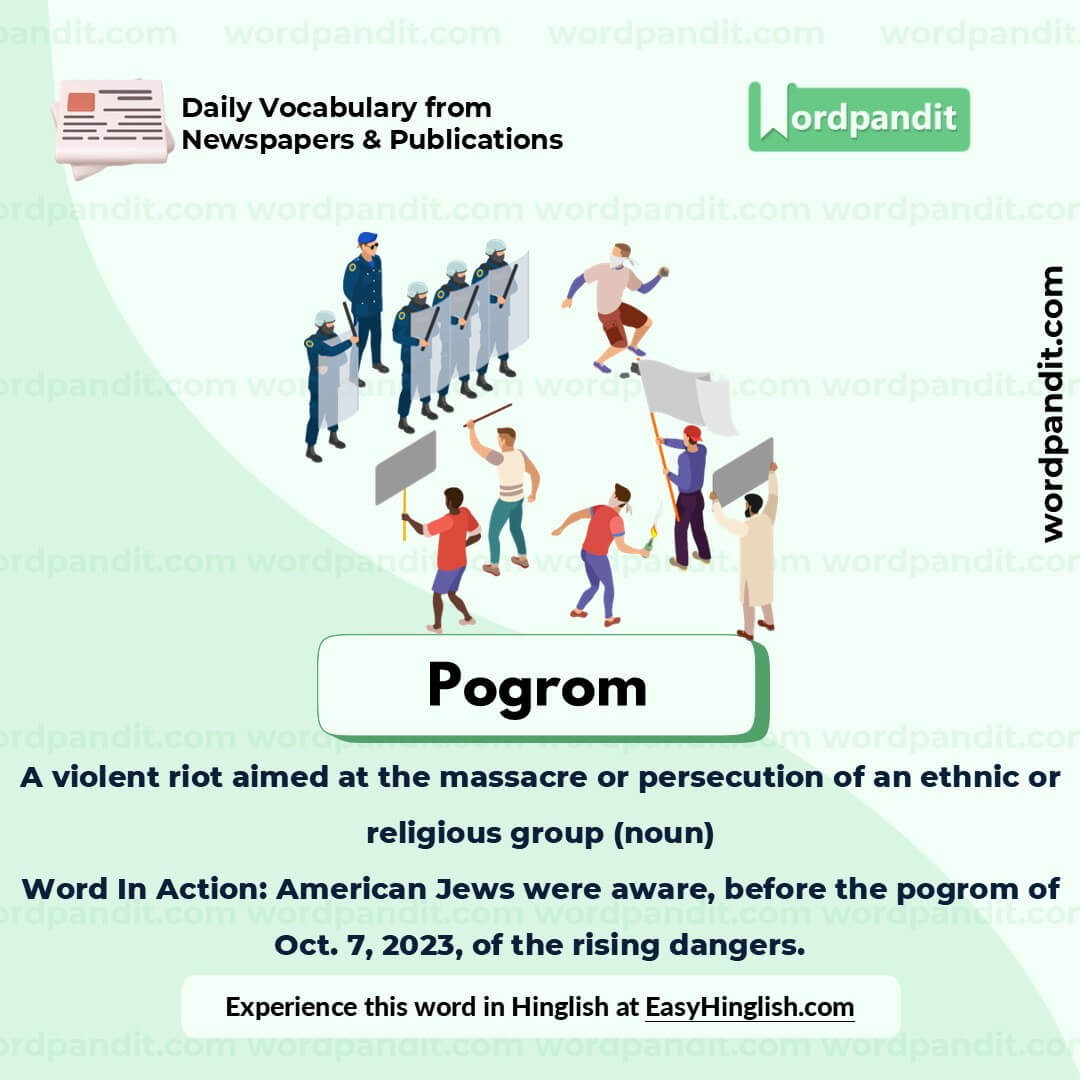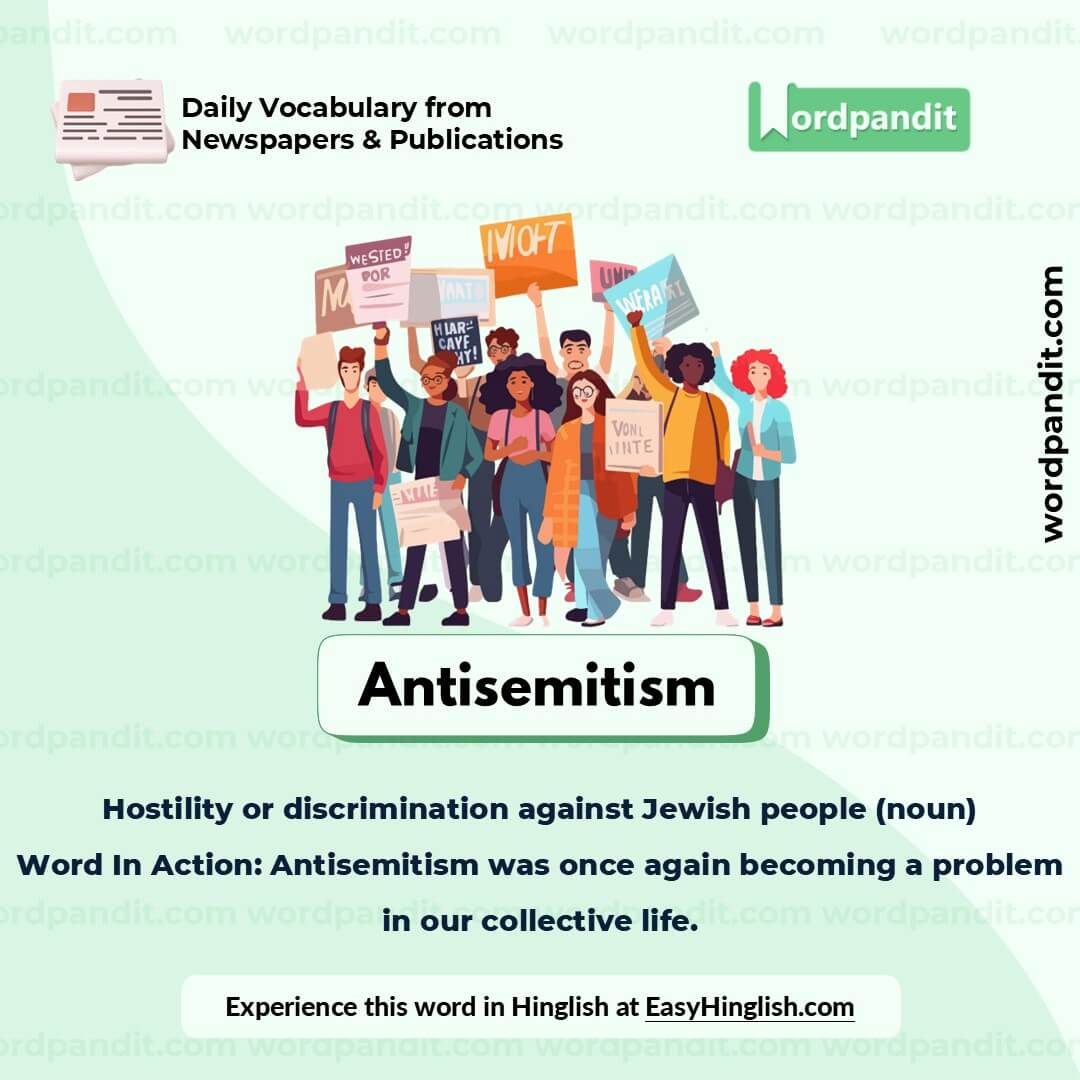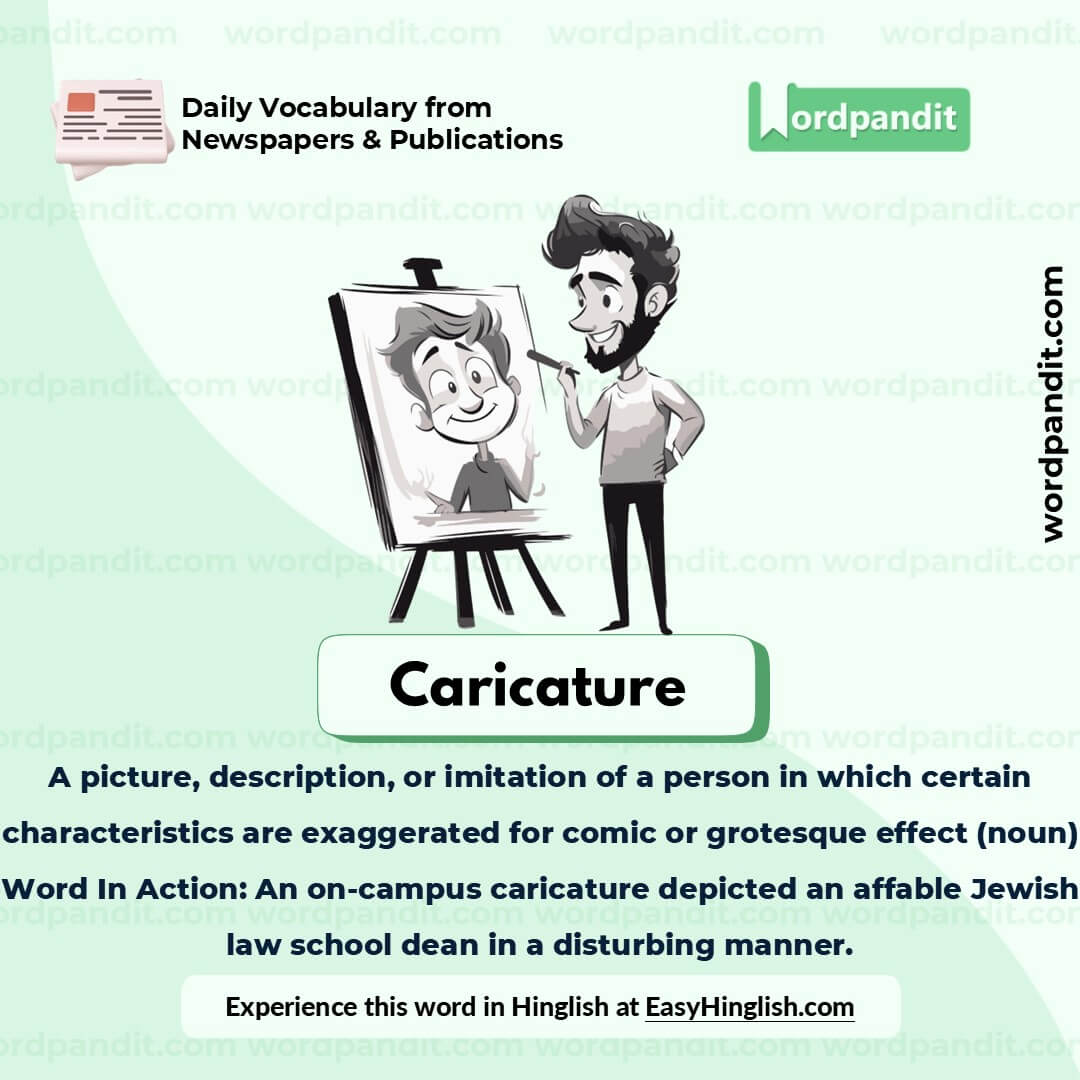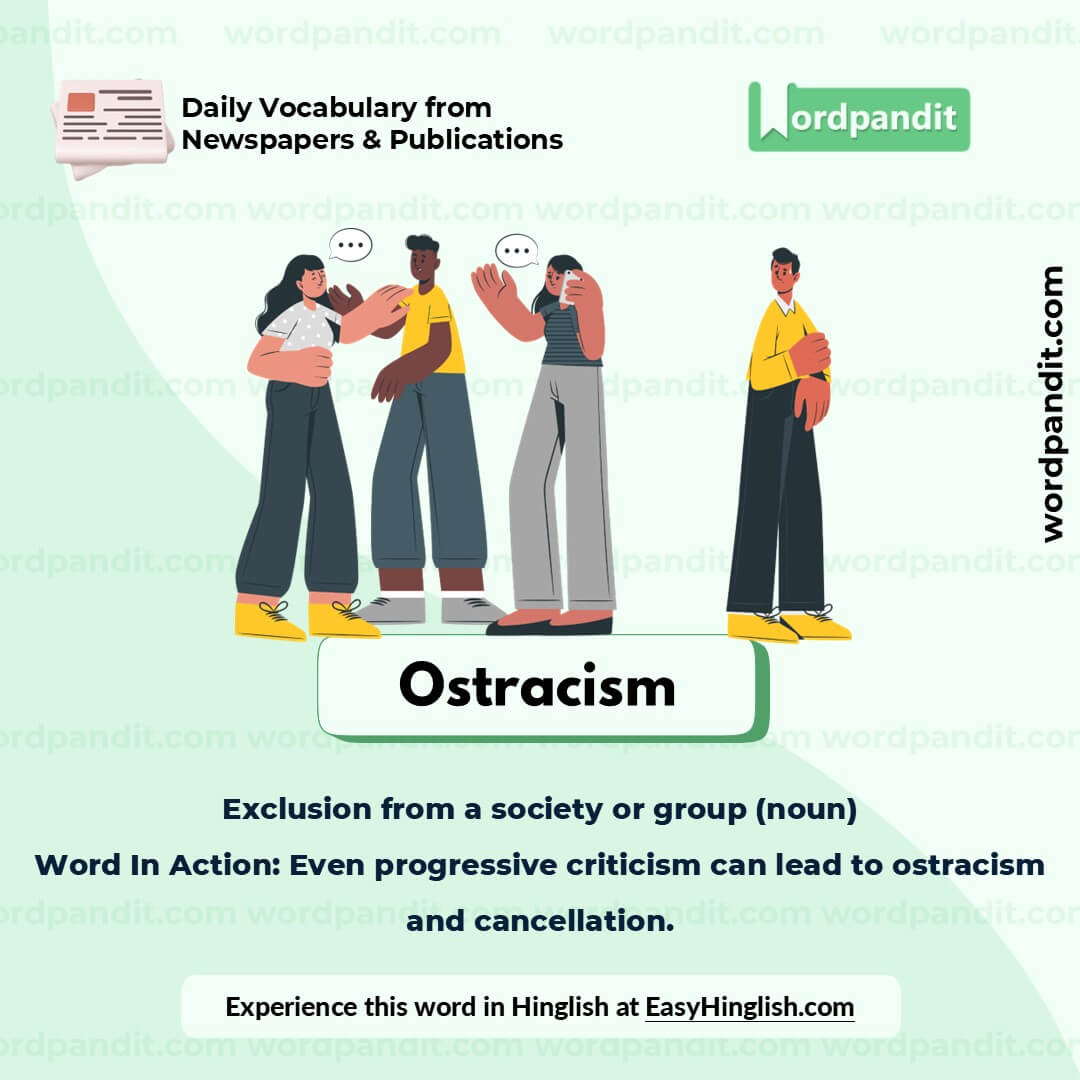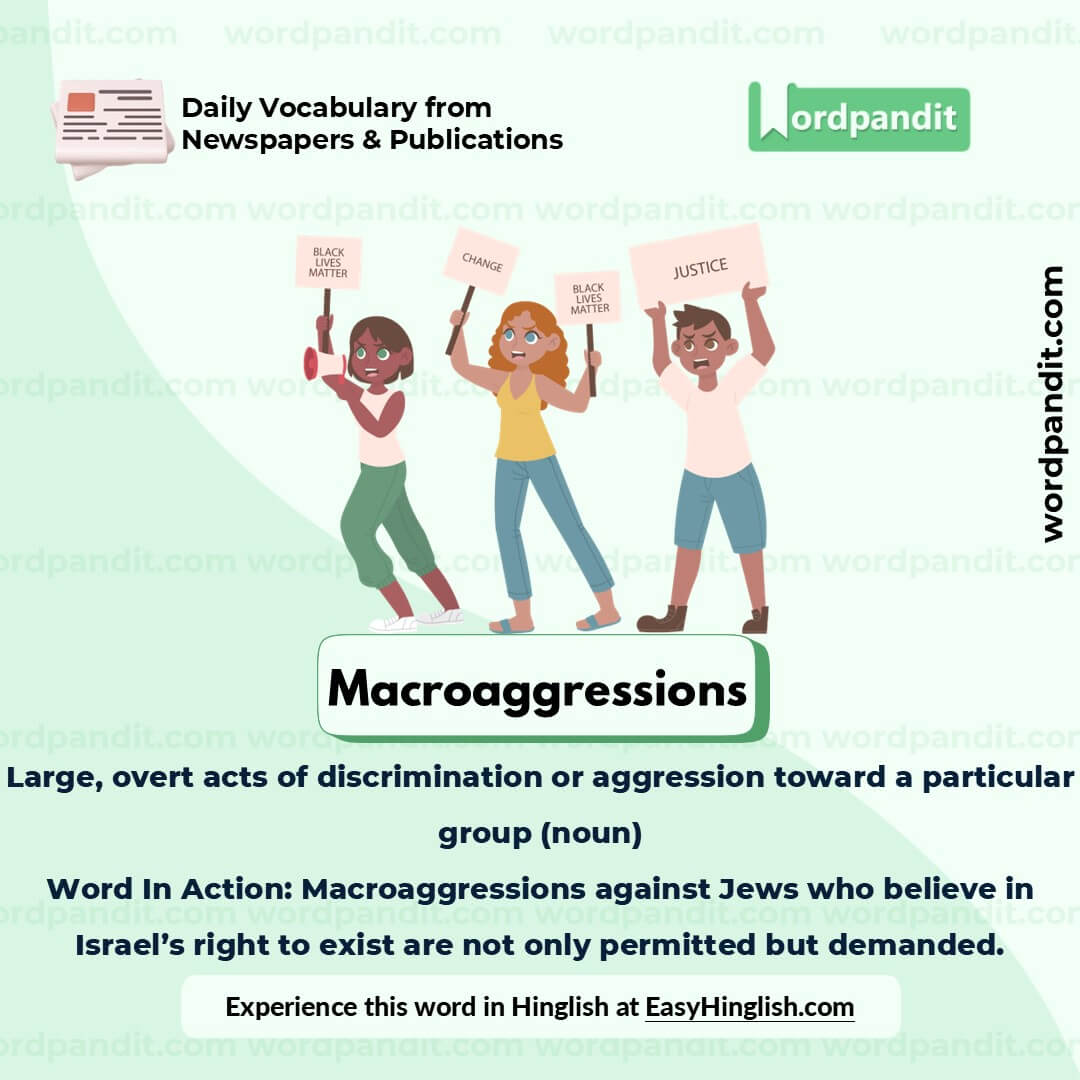Daily Vocabulary from International Newspapers and Publications
Expand Your Vocabulary with Wordpandit’s Global Vocabulary Hub
At Wordpandit, we are committed to helping you develop a truly global vocabulary by drawing from some of the most respected international publications. This section is designed to keep you ahead of the curve by introducing you to words that define global conversations and trends.
The Power of Global Sources
To help you think and communicate on a global scale, we curate vocabulary from renowned international sources, such as:
- The New York Times
- The Washington Post
- BBC
- The Guardian
- The Economist
- Scientific American
- Psychology Today
- And many more...
Stay Global, Stay Competitive
Our daily updates from international publications ensure you are consistently exposed to new words that reflect global news and developments, making sure your vocabulary is not only current but also globally relevant.
Enhance Your Global Perspective
Whether you’re preparing for international exams, aiming to excel in global business communication, or want to enhance your language skills for personal growth, Wordpandit offers the resources you need to thrive in a global context.
Effective Learning, Global Reach
Our learning methodology combines global examples, memory aids, and interactive activities, allowing you to internalize new words effectively and apply them in real-world scenarios.
Begin Your Global Vocabulary Journey Now!
Why Choose Wordpandit?
Practical Learning: Focus on words you'll actually encounter in real-world reading, enhancing your comprehension and communication skills.
Diverse Content: From current affairs to scientific breakthroughs, our varied sources expose you to vocabulary across multiple domains.
Effortless Integration: Make Wordpandit a part of your daily routine. Just a few minutes each day can significantly boost your lexicon over time.
Your Path to Vocabulary Mastery
- Visit our Daily Vocabulary section regularly
- Explore new words and their usage in context
- Practice incorporating these words into your own writing and speech
- Track your progress as your vocabulary expands
Start Your Journey Today
Embark on your vocabulary enhancement journey with Wordpandit. By consistently engaging with our daily posts, you'll build a robust vocabulary that serves you well in academic, professional, and personal contexts.
Remember, a word a day keeps linguistic limitations at bay. Make Wordpandit your daily companion in the quest for vocabulary excellence!
WORD-1: Pogrom
Context:
"American Jews were aware, before the pogrom of Oct. 7, 2023" - The New York Times
Explanatory Paragraph:
The word pogrom refers to an organized, often violent attack on a particular ethnic group, historically targeting Jews. These attacks were usually carried out with the complicity or support of authorities. The term is a stark reminder of the horrors faced by vulnerable communities throughout history.
Meaning: A violent riot aimed at the massacre or persecution of an ethnic or religious group (noun)
Pronunciation: puh-GROM or POH-grum
Difficulty Level: ⭐⭐⭐⭐ (Advanced)
Etymology: From Russian pogrom, meaning "to wreak havoc, to demolish"
Synonyms & Antonyms:
Synonyms: massacre, persecution, slaughter, assault, raid
Antonyms: protection, defense, sanctuary, peace, tolerance
Usage Examples:
- The pogrom in the town left many families devastated and homeless.
- Historical accounts of pogroms highlight the brutality faced by Jewish communities in Europe.
- Activists gathered to commemorate the victims of past pogroms.
- The word "pogrom" became widely used to describe anti-Jewish riots in the late 19th century.
Cultural Reference:
"The term pogrom, most commonly associated with attacks on Jews in Tsarist Russia, reflects a dark chapter in human history where mass violence was state-sanctioned." - History Textbooks
Think About It:
What lessons can we learn from the history of pogroms to prevent similar atrocities in modern times?
Quick Activity:
Research a historical pogrom and write a short summary about its impact on the affected community.
Memory Tip:
Remember "pogrom" by associating it with "program of destruction" — both terms share similar sounds and indicate systematic action.
Real-World Application:
The word "pogrom" is often used in historical discussions to highlight the importance of combating ethnic violence and preserving human rights.
WORD-2: Antisemitism
Context:
"American Jews were aware, before the pogrom of Oct. 7, 2023, that antisemitism was once again a problem in our collective life." - The New York Times
Explanatory Paragraph:
Antisemitism refers to hostility, prejudice, or discrimination against Jewish people. Throughout history, this form of hatred has led to widespread persecution and violence, including pogroms, expulsions, and genocides. Despite progress in combating it, antisemitism persists in many parts of the world today.
Meaning: Hostility or discrimination against Jewish people (noun)
Pronunciation: an-tee-SEM-i-tiz-um
Difficulty Level: ⭐⭐⭐⭐ (Advanced)
Etymology: From German Antisemitismus, first coined in the late 19th century to describe anti-Jewish sentiment
Synonyms & Antonyms:
Synonyms: prejudice, bigotry, racism, xenophobia, intolerance
Antonyms: tolerance, acceptance, inclusion, equality, pluralism
Usage Examples:
- The rise of antisemitism in Europe during the 1930s led to unspeakable atrocities.
- The professor gave a lecture on the dangerous resurgence of antisemitism in modern society.
- Acts of antisemitism were widely condemned by leaders and activists around the world.
- The community held a vigil to stand against antisemitism and hate speech.
Cultural Reference:
"Antisemitism is a disease—you catch it from others, but you can’t be cured of it by yourself." - Holocaust survivor Elie Wiesel
Think About It:
Why do you think antisemitism has persisted for so long, and what steps can be taken to prevent it in the future?
Quick Activity:
Write down examples of how antisemitism has manifested in different periods of history. Compare these to modern-day incidents.
Memory Tip:
To remember "antisemitism," think of "anti-" meaning against, and "Semitism," relating to the Jewish people, which together means hostility towards Jews.
Real-World Application:
The word "antisemitism" is often used in discussions about hate crimes, human rights, and social justice efforts to combat prejudice and discrimination.
WORD-3: Caricature
Context:
"An on-campus caricature depicted an affable Jewish law school dean holding a knife and fork drenched in blood." - The New York Times
Explanatory Paragraph:
A caricature is an exaggerated or distorted representation of a person or thing, often used to mock or criticize. It exaggerates certain characteristics, such as physical traits or behaviors, to create a humorous or satirical effect, though it can also be used maliciously to perpetuate stereotypes.
Meaning: A picture, description, or imitation of a person in which certain characteristics are exaggerated for comic or grotesque effect (noun)
Pronunciation: KAR-i-kuh-choor
Difficulty Level: ⭐⭐⭐ (Intermediate)
Etymology: From Italian caricatura, meaning "an exaggerated portrait," derived from caricare meaning "to load" or "exaggerate"
Synonyms & Antonyms:
Synonyms: parody, satire, lampoon, cartoon, mockery
Antonyms: portrait, representation, depiction, realism
Usage Examples:
- The artist's caricature of the politician emphasized his large ears and wild gestures.
- The magazine published a caricature of the celebrity, exaggerating her extravagant lifestyle.
- During the protest, caricatures of political leaders were used to mock their policies.
- The caricature of the principal in the yearbook caused a stir among students and teachers.
Cultural Reference:
"Caricature has the ability to capture the truth of a subject while distorting its appearance." - Art Critic John Berger
Think About It:
How can caricatures be both humorous and harmful, depending on the context and intent behind them?
Quick Activity:
Draw or describe a caricature of a famous person, focusing on exaggerating one of their most recognizable features.
Memory Tip:
To remember "caricature," think of "character" — both words involve emphasizing distinct traits or features.
Real-World Application:
The word "caricature" is often used in discussions of art, satire, and social commentary, as well as in critiques of how individuals or groups are misrepresented in the media.
WORD-4: Ostracism
Context:
"Even if it’s of the most progressive kind or has little to do with an author’s work — can lead to ostracism and cancellation." - The New York Times
Explanatory Paragraph:
Ostracism refers to the act of excluding or banishing someone from a group or society. It often occurs when an individual is shunned for their beliefs, actions, or characteristics. Historically, it was used as a formal method of exile, but today, it can happen in social or professional contexts, often leading to social isolation.
Meaning: Exclusion from a society or group (noun)
Pronunciation: OS-truh-siz-um
Difficulty Level: ⭐⭐⭐ (Intermediate)
Etymology: From Greek ostrakizein meaning "to banish," originally referring to the practice of exiling people by writing their names on pottery shards (ostraka)
Synonyms & Antonyms:
Synonyms: exclusion, shunning, exile, banishment, rejection
Antonyms: inclusion, acceptance, integration, welcome, embrace
Usage Examples:
- The employee faced ostracism after speaking out against unethical practices at the company.
- In ancient Athens, citizens could vote to impose ostracism on individuals they deemed a threat to the state.
- The artist experienced ostracism from the community for their controversial opinions.
- Being different in a tightly knit group often leads to ostracism and isolation.
Cultural Reference:
"Ostracism can be a subtle yet powerful form of social control." - Social Psychologist Kipling Williams
Think About It:
How does ostracism affect individuals emotionally and mentally, and what can be done to foster more inclusive environments?
Quick Activity:
Reflect on a time when you or someone you know experienced ostracism. Write about how it felt and what could have changed the situation.
Memory Tip:
Link "ostracism" to "ostraka," the pottery shards used in ancient Greece for voting someone out of society.
Real-World Application:
Understanding ostracism helps us recognize the harmful effects of exclusion in workplaces, schools, and social circles, prompting efforts to create more inclusive communities.
WORD-5: Macroaggressions
Context:
"In an era that stresses sensitivity to every microaggression against nearly any minority, macroaggressions against Jews who happen to believe that Israel has a right to exist are not only permitted but demanded." - The New York Times
Explanatory Paragraph:
Macroaggressions refer to large-scale, overt acts of discrimination or hostility aimed at a particular group, often with malicious intent. Unlike microaggressions, which are more subtle and indirect, macroaggressions are blatant and can have far-reaching effects, particularly on marginalized communities.
Meaning: Large, overt acts of discrimination or aggression toward a particular group (noun)
Pronunciation: mak-roh-uh-GRESH-unz
Difficulty Level: ⭐⭐⭐ (Intermediate)
Etymology: From Greek makros meaning "large" and Latin aggressio meaning "attack"
Synonyms & Antonyms:
Synonyms: discrimination, harassment, persecution, oppression, hostility
Antonyms: tolerance, acceptance, inclusion, fairness, equality
Usage Examples:
- The protestors spoke out against the macroaggressions faced by minorities in the country.
- Unlike microaggressions, which can be subtle, macroaggressions are often open and hostile acts of prejudice.
- Systemic racism includes both microaggressions and macroaggressions that disproportionately affect certain groups.
- The speaker highlighted the macroaggressions faced by Jewish students on campus.
Cultural Reference:
"Macroaggressions can deeply wound the targeted community, making social environments hostile and unwelcoming." - Sociologist Derald Wing Sue
Think About It:
Why are macroaggressions more easily recognized than microaggressions, and how can both forms of discrimination be addressed?
Quick Activity:
Identify a situation in which macroaggressions have been directed at a specific group. Reflect on the consequences and discuss possible ways to prevent such incidents.
Memory Tip:
To remember "macroaggressions," think of "macro" meaning "large" — these are big, overt acts of aggression compared to smaller, subtle microaggressions.
Real-World Application:
The concept of macroaggressions is often discussed in social justice contexts, highlighting the importance of addressing both large-scale and subtle forms of discrimination in society.


